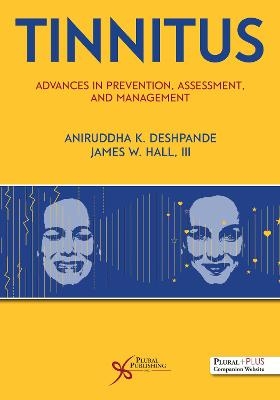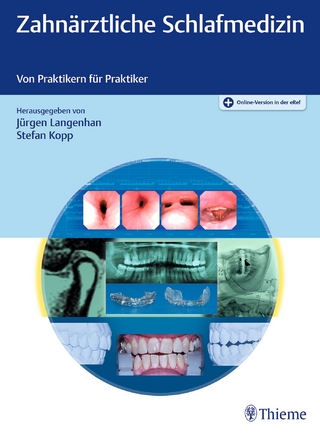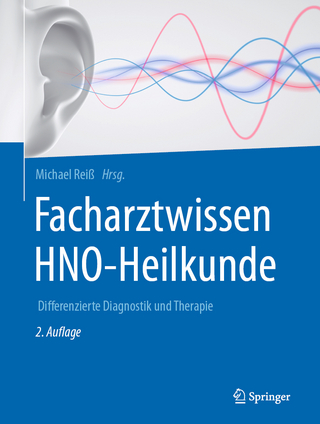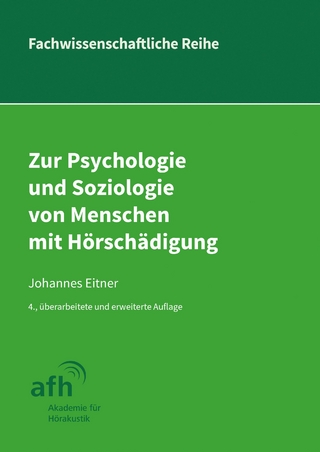
Tinnitus
Plural Publishing Inc (Verlag)
978-1-63550-342-5 (ISBN)
The term 'tinnitus' is searched over 110,000+ times every month. Unfortunately, much of the information readily available through internet searches is inaccurate, whereas most evidence-based information is only available through peer-reviewed journal articles often containing dense scientific jargon. Tinnitus: Advances in Prevention, Assessment, and Management aims to bridge this gap by providing up-to-date and evidence-based information on tinnitus prevention, assessment, and management. Presented in a quick, easy-to-read format, this text offers a practical and handy resource for busy practitioners and health profession students, as well as individuals with bothersome tinnitus.
Each section contains short chapters providing accessible overviews of research related to tinnitus and hyperacusis. Section I delves into various approaches for prevention of hearing loss and tinnitus. Section II covers tinnitus assessment, while Section III introduces readers to a range of tinnitus management solutions. Section IV focuses solely on recent advances in assessment and management of hyperacusis and other disorders of decreased sound tolerance. Authors of Section V review recent tinnitus-related developments, including social media use and COVID-19. The final section consists of interesting real-life case studies involving patients with bothersome tinnitus.
Key Features
Interesting real-life tinnitus-related case studies puts new research into context
More than 50 illustrations and tables help clarify and expand on key concepts covered throughout the text, enabling clinicians and students to more easily understand and apply complex material.
Each chapter opens with a brief introduction and background on a tinnitus-related topic, followed by up-to-date, evidence-based, peer-reviewed research on the topic
All chapters contain ideas for future research on the topic as well as clinical implications of the research
Chapters end with key messages and references for further review of the topic
A PluralPlus companion website with color versions of figures from the text and audio samples for Chapter 20
Aniruddha K. Deshpande, PhD, CCC-A, is an Associate Professor in the Department of Speech-Language-Hearing Sciences and the Director of The Hear-Ring Lab at Hofstra University. He completed his PhD at the University of Cincinnati and his postdoctoral fellowship at the Department of Otolaryngology, University of Iowa. Dr. Deshpande's research interests include tinnitus, hyperacusis, noise-induced hearing loss, and hearing conservation. His current research focuses on investigating the interplay between tinnitus and technology. He has authored several publications, presentations, and book chapters, and is a recipient of prestigious honors and awards. ****** James W. Hall III, PhD, is an internationally recognized audiologist with over 40 years of clinical, teaching, research, and administrative experience. He received his bachelor's degree in biology from American International College, his master's degree in speech pathology from Northwestern University, and his PhD in audiology from Baylor College of Medicine under the direction of James Jerger. During his career, Dr. Hall has held clinical, academic, and administrative positions at major medical centers, and leadership roles in the American Academy of Audiology. He is the author of over 200 peer-reviewed publications, invited articles, and book chapters and also 10 textbooks. Dr. Hall now holds academic appointments as Professor at Salus University and the University of Hawaii.
Foreword
Preface
Acknowledgements
About the Artist
Contributors
Reviewers
Section I. Prevention of Hearing Loss and Tinnitus
Chapter 1. Mechanisms of Noise- and Music-Induced Tinnitus
Monica Trevino, Aastha Trehan, Celia D. Escabi, and Edward Lobarinas
Chapter 2. Genetic Basis of Tinnitus
Ishan Sunilkumar Bhatt
Chapter 3. Health Determinants and Modifiable Risk Factors of Tinnitus
Conner Jansen, Colleen Le Prell, and Christopher Spankovich
Chapter 4. Toward Integration of Soundmaps in Tinnitus Research
Tae Hong Park
Section II. Assessment of Tinnitus
Chapter 5. The Importance of Patient History
Patricia C, Mancini and Richard Tyler
Chapter 6. Audiological Assessment of Tinnitus
James W. Hall, III
Chapter 7. App-Based Tinnitus Assessment
Magdalena Sereda, Derek J. Hoare, and Aniruddha K. Deshpande
Chapter 8. Objective Diagnosis of Tinnitus
Jos J. Eggermont
Section III. Management of Tinnitus
Chapter 9. Self-Directed Tinnitus Therapy: A Review of At-Home Tinnitus Therapy Options
Grant D. Searchfield and Sun-Jae (Jay) Kim
Chapter 10. The Role of Amplification in Tinnitus Management
Giriraj Singh Shekhawat, Laure Jacquemin, and Roland Schattee
Chapter 11. Audiologist-Delivered Cognitive Behavioral Therapy for Tinnitus
Eldre W. Beukes and Vinaya Manchaiah
Chapter 12. Application of Teleaudiology to the Clinical Management of Tinnitus
James A. Henry, Emily J. Thielman, and Leslie D. Grush
Chapter 13. Cutting-Edge Approaches in Tinnitus Management
Sook Ling Leong and Sven Vanneste
Chapter 14. Dietary Supplements, Essential Oils, and Cannabinoids for Tinnitus Relief
Robert M. DiSogra, Colleen A. O'Brien-Russo, and Aniruddha K. Deshpande
Chapter 15. Complementary and Alternative Medicine and Tinnitus
Gemma Crundwell and David M. Baguley
Chapter 16. Values-Led Care in Tinnitus
Helen Pryce
Section IV. Hyperacusis
Chapter 17 - Hyperacusis and Misophonia
Hashir Aazh
Section V. Recent Developments
Chapter 18. The Role of Social Media in Tinnitus and Hyperacusis
Colleen O'Brien-Russo and Aniruddha K. Deshpande
Chapter 19. Implications of the COVID-19 Pandemic for Tinnitus
Eldre Beukes and Vinaya Manchaiah
Section VI: Illustrative Clinical Scenarios
Chapter 20. Case Study 1: Asymmetrical Sensorineural Hearing Loss and Tinnitus
Aniruddha Deshpande and Lisa Mener
Chapter 21. Case Study 2: Sudden Sensorineural Hearing Loss and Tinnitus
Aniruddha Deshpande and Diana Callesano
Chapter 22. Case Study 3: Pulsatile Tinnitus
Adwight Risbud, Mehdi Abouzari, and Hamid R. Djalilian
Chapter 23. Case Study 4: Managing Debilitating Tinnitus in a Patient with Complex Comorbidities
Tricia L. Scaglione, Lori Zitelli, and David P. Jedlicka
Chapter 24. Case Study 5: Somatosensory Tinnitus
Maja Svrakic
| Erscheinungsdatum | 09.03.2022 |
|---|---|
| Verlagsort | San Diego |
| Sprache | englisch |
| Maße | 178 x 254 mm |
| Themenwelt | Medizin / Pharmazie ► Medizinische Fachgebiete ► HNO-Heilkunde |
| ISBN-10 | 1-63550-342-6 / 1635503426 |
| ISBN-13 | 978-1-63550-342-5 / 9781635503425 |
| Zustand | Neuware |
| Haben Sie eine Frage zum Produkt? |
aus dem Bereich


